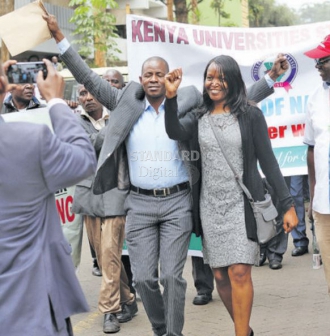
By this time next week, Kenya might be having a new president, re-elected the incumbent or preparing for a runoff. In the past few months, Kenyans have witnessed campaign blitzes from political parties as each candidate appeals to voters. The contest for most appropriate signs and symbols in the media has escalated.
Among thousands of elective seats available, Kenyans have an option of picking from eight presidential candidates. While the Third Way Alliance has emerged as increasingly impactful in setting the electoral process agenda, the other candidates outside the two leading coalitions are simply clowning also-rans with little chances of going beyond having their names on Dubai-printed ballot papers. The NASA or Jubilee outfits will, barring a cosmic rapture or an unforeseen disaster, give us our next president.